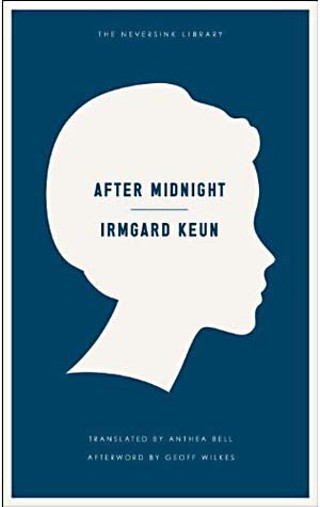Book Review: New In Print
The rise of Nazism slowly affects a partying 19-year-old in Germany
Reviewed by Sarah Smith, Fri., June 17, 2011

After Midnight
by Irmgard Keun (translated by Anthea Bell)Melville House, 176 pp., $15 (paper)
Berlin is a city of wishful thinking. Even now, many of its most glorious dance halls stand, still decorated with the gold tinsel that festooned them in the 1930s, and bands still play the old songs there. You can drink sherry with other young people under lamps in the garden and maybe begin to wish that the bombs had never fallen, that the whole miserable business had simply not begun. Such wishing is lazy and without comprehension, objective, or any motive beyond childish pique, but it is nevertheless powerful and perhaps necessary to understanding how the rise of the Nazi Party became possible.
Though it takes place in Frankfurt rather than Berlin, Imgard Keun's After Midnight is steeped in just such an atmosphere of youthful confusion about grim politics. Opening in the commotion attending a visit from the Führer's motorcade, it follows Sanna, Gerti, and their paramours through glittering cocktail-hour intrigues and silly parties while the dark, paranoiac tide laps at their ankles and continues to rise.
Sanna is not a political firebrand; she barely comprehends the social shifts occurring in Frankfurt, where, as everywhere in Germany, the practice of informing on one's neighbors and family members intensifies the drone of domestic anxiety. Sanna and her friends fuss over normal 19-year-old problems, mostly regarding men and romance, but these subjects are hardly safe from being marred by the oppressive tension. Sanna's fiancé, Franz, is jailed for months because of anti-Nazi pamphlets found in his business partner's apartment, and she herself is locked up briefly over a glib comment regarding how profusely Hitler sweats during his speeches.
You have to look hard to find a hero here; the youth of Frankfurt are more concerned with avoiding now-dangerous improprieties than they are with resistance. Through Sanna, Keun presents a guileless but hardly naive account of how gradual acquiescence transforms a society into a monstrous shadow version of itself. Eventually galvanized by the suicide of a journalist friend who can't bear watching this transformation, she acts against it, smuggling herself and Franz to safety. Love, rather than a political awakening, is the motive here, but in such murk, any way forward is brave.










